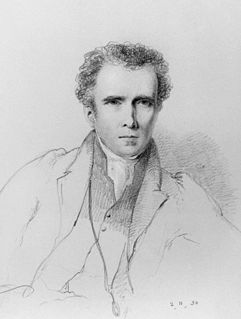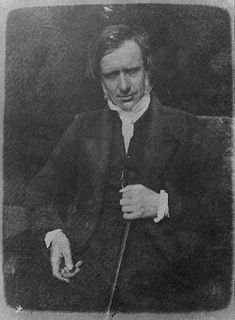Top 337 Despised Quotes & Sayings - Page 6
Explore popular Despised quotes.
Last updated on April 20, 2025.
When the desire of wealth is taking hold of the heart, let us look round and see how it operates upon than whose industry or fortune has obtained it. When we find them oppressed with their own abundance, luxurious without pleasure, idle without ease, impatient and querulous in themselves, and despised or hated by the rest of mankind, we shall soon be convinced that if the real wants of our condition are satisfied, there remains little to be sought with solicitude or desired with eagerness.
O God, I confess I am not worthy to rock that little babe or wash its diapers, or to be entrusted with the care of a child and its mother. How is it that I without any merit have come to this distinction of being certain that I am serving thy creature and thy most precious will? Oh, how gladly will I do so. Though the duty should be even more insignificant and despised, neither frost nor heat, neither drudgery nor labor will distress me for I am certain that it is thus pleasing in thy sight.
Money has become the grand test of virtue. By this test beggars fail, and for this they are despised. If one could earn even ten pounds a week at begging, it would become a respectable profession immediately. A beggar, looked at realistically, is simply a businessman, getting his living, like other businessmen, in the way that comes to hand. He has not, more than most modem people, sold his honour; he has merely made the mistake of choosing a trade at which it is impossible to grow rich.
Mosca and Saracen shared, if not a friendship, at least the solidarity of the generally despised. Mosca assumed that Saracen had his reasons for his persecution of terriers and his possessive love of the malthouse roof. In turn, when Mosca had interrupted Saracen’s self-important nightly patrol and scooped him up, Saracen had assumed that she too had her reasons.
Many men without morals have attacked religion because it was contrary to their inclinations. Many wise men have despised it because it seemed to them ridiculous. Many persons have regarded it with indifference, because they have never felt its true disadvantages. But it is as a citizen that I attack it, because it seems to me harmful to the happiness of the state, hostile to the march of the mind of man, and contrary to sound morality, from which the interests of state policy can never be separated.
Only the [Catholic] Church stood squarely across the path of Hitler’s campaign for suppressing truth. I never had any special interest in the Church before, but now I feel a great affection and admiration because the Church alone has had the courage and persistence to stand for intellectual truth and moral freedom. I am forced thus to confess that what I once despised I now praise unreservedly.
Conservatives are people who worship at the graves of dead radicals. Stop to think about that. The people who started this country, George Washington, Jefferson, Hamilton, these were not conservatives; these were the radicals of the time. In fact, conservatives always look back on people who they despised and make them into heroes. If you were to listen to the religious right today, they would make you believe that Martin Luther King was one of their flock. In reality, they hated him and did everything they could to destroy him.
It is long ere we discover how rich we are. Our history, we are sure, is quite tame: we have nothing to write, nothing to infer. But our wiser years still run back to the despised recollections of childhood, and always we are fishing up some wonderful article out of that pond; until, by and by, we begin to suspect that the biography of the one foolish person we know is, in reality, nothing less than the miniature paraphrase of the hundred volumes of the Universal History.
Fairest Cordelia, that art most rich, being poor; Most choice, forsaken; and most loved, despised! Thee and thy virtues here I seize upon: Be it lawful I take up what's cast away. Gods, gods! 'tis strange that from their cold'st neglect My love should kindle to inflamed respect. Thy dowerless daughter, king, thrown to my chance, Is queen of us, of ours, and our fair France: Not all the dukes of waterish Burgundy Can buy this unprized precious maid of me. Bid them farewell, Cordelia, though unkind: Thou losest here, a better where to find.
It's a blessed thing to die daily. For what is there in this world to be accounted of! The best men according to the flesh, and things, are lighter than vanity. I find this only good, to love the Lord and his poor despised people, to do for them and to be ready to suffer with them....and he that is found worthy of this hath obtained great favour from the Lord; and he that is established in this shall ( being conformed to Christ and the rest of the Body) participate in the glory of a resurrection which will answer all.
Scientists are entitled to be proud of their accomplishments, and what accomplishments can they call 'theirs' except the things they have done or thought of first? People who criticize scientists for wanting to enjoy the satisfaction of intellectual ownership are confusing possessiveness with pride of possession. Meanness, secretiveness and, sharp practice are as much despised by scientists as by other decent people in the world of ordinary everyday affairs; nor, in my experience, is generosity less common among them, or less highly esteemed.
In the hollow tree, in the old gray tower,
The spectral Owl doth dwell;
Dull, hated, despised, in the sunshine hour,
But at the dusk--he's abroad and well!
Not a bird of the forest e'er mates with him--
All mock him outright, by day:
But at night, when the woods grow still and dim,
The boldest will shrink away!
O, when the night falls, and roosts the fowl,
Then, then, is the reign of the Horned Owl!
There are some promises in the Bible which I have never yet used; but I am well assured that there will come times of trial and trouble when I shall find that poor despised promise, which I thought was never meant for me, will be the only one on which I can float. I know that the time is coming when every believer shall know the worth of every promise in the covenant.
Perhaps I should say that in general there are three solutions to such a situation. I mean not only in Holland, but everywhere where there are minority groups: in America, in Vietnam with the Chinese. Everywhere there is the same problem. But there are fundamentally three, actually only two possible solutions. A possible solution is that the despised minority is able to establish its own state somewhere else. The other solution is a higher or lesser degree of assimilation. And the third possibility, which is not a solution at all, is the permanence of the tension and conflict over time.
O eloquent, just, and mighty Death! whom none could advise, thou hast persuaded; what none hath dared, thou hast done; and whom all the world hath flattered, thou only hath cast out of the world and despised. Thou hast drawn together all the far-stretched greatness, all the pride, cruelty, and ambition of man, and covered it all over with these two narrow words, Hic jacet!
The heart of the Christian Gospel is precisely that God is the all holy One; the all powerful One is also the One full of mercy and compassion. He is not a neutral God inhabiting some inaccessible Mount Olympus. He is a God who cares about His children and cares enormously for the weak, the poor, the naked, the downtrodden, the despised. He takes their side not because they are good, since many of them are demonstrably not so. He takes their side because He is that kind of God, and they have no one else to champion them.
Pardon me, O perfections of my God, for having preferred imperfect and evil inclinations to Thee! Pardon me, O justice of my God, for having outraged Thee by my sins. Pardon me, O holiness of my God, for having so long stained Thy sight's purity by my sins. Pardon me, O mercy of my God, for having despised so long Thy mercy's voice. In deep sorrow and contrition, I cast myself at Thy feet: Have mercy on me.
Now, there was an anchorite called Timothy in a coenobium. The abbot, having heard of a brother who was being tempted, asked Timothy about him, and the anchorite advised him to drive the brother away. Then when he had been driven away, the brother's temptation fell upon Timothy to the point where he was in danger. Then Timothy stood up before God and said, "I have sinned. Forgive me." Then a voice came which said to him, "Timothy, the only reason I have done this to you is because you despised your brother in the time of his temptation."
She had, without realizing it at the time, learned to follow Nick's gaze, learned to learn his lust...his desires remained memorized within her. She looked at the attractive women he would look at...She had become him: she longed for these women. But she was also herself, and so she despised them. She lusted after them, but she also wanted to beat them up. A rapist. She had become a rapist, driving to work in a car.
The pride of ancestry is a superstructure of the most imposing height, but resting on the most flimsy foundation. It is ridiculous enough to observe the hauteur with which the old nobility look down on the new. The reason of this puzzled me a little, until I began to reflect that most titles are respectable only because they are old; if new, they would be despised, because all those who now admire the grandeur of the stream would see nothing but the impurity of the source.
This propaganda of dis-associating Western Negroes from Africa is not a new one. For many years white propagandists have been printing tons of literature to impress scattered Ethiopia, especially that portion within their civilization, with the idea that Africa is a despised place, inhabited by savages, and cannibals, where no civilized human being should go, especially black civilized human beings. This propaganda is promulgated for the cause that is being realized today. That cause is COLONIAL EXPANSION for the white nations of the world.
And what an example of the power of dress young Oliver Twist was! Wrapped in the blanket which had hitherto formed his only covering, he might have been the child of a nobleman or a beggar;—it would have been hard for the haughtiest stranger to have fixed his station in society. But now he was enveloped in the old calico robes, that had grown yellow in the same service; he was badged and ticketed, and fell into his place at once—a parish child—the orphan of a workhouse—the humble, half-starved drudge—to be cuffed and buffeted through the world, despised by all, and pitied by none.
Throughout history, poverty is the normal condition of man. Advances which permit this norm to be exceeded — here and there, now and then — are the work of an extremely small minority, frequently despised, often condemned, and almost always opposed by all right-thinking people. Whenever this tiny minority is kept from creating, or (as sometimes happens) is driven out of a society, the people then slip back into abject poverty. This is known as "bad luck.
Say, ye oppress'd by some fantastic woes,
Some jarring nerve that baffles your repose;
Who press the downy couch, while slaves advance
With timid eye, to read the distant glance;
Who with sad prayers the weary doctor tease,
To name the nameless ever-new disease;
Who with mock patience dire complaints endure,
Which real pain and that alone can cure;
How would ye bear in real pain to lie,
Despised, neglected, left alone to die?
How would ye bear to draw your latest breath,
Where all that's wretched paves the way for death?
Virtually all political discourse in the days of my youth was devoted to the ferreting out of hypocrisy... Because they were hypocrites, the Victorians were despised in the late twentieth century. Many of the persons who held such opinions were, of course, guilty of the most nefarious conduct themselves, and yet saw no paradox in holding such views because they were not hypocrites themselves-they took no moral stances and lived by none.
Sin! Sin! Thou art a hateful and horrible thing, that abominable thing which God hates. And what wonder? Thou hast insulted His holy majesty; thou hast bereaved Him of beloved children; thou hast crucified the Son of His infinite love; thou hast vexed His gracious Spirit; thou hast defied His power; thou hast despised His grace; and in the body and blood of Jesus, as if that were a common thing, thou hast trodden under foot His matchless mercy. Surely, brethren, the wonder of wonders is, that sin is not that abominable thing which we also hate.
But even friendship like our heroes' Exist no more; for we've outgrown All sentiments and deem men zeroes-- Except of course ourselves alone. We all take on Napoleon's features, And millions of our fellow creatures Are nothing more to us than tools... Since feelings are for freaks and fools. Eugene, of course, had keen perceptions And on the whole despised mankind, Yet wasn't, like so many, blind; And since each rule permits exceptions, He did respect a noble few, And, cold himself, gave warmth its due.
The native American has been generally despised by his white conquerors for his poverty and simplicity. They forget, perhaps, that his religion forbade the accumulation of wealth and the enjoyment of luxury... Furthermore, it was the rule of his life to share the fruits of his skill and success with his less fortunate brothers. Thus he kept his spirit free from the clog of pride, cupidity, or envy, and carried out, as he believed, the divine decree-a matter profoundly important to him.
However dangerous might be the shock of a comet, it might be so slight, that it would only do damage at the part of the Earth where it actually struck; perhaps even we might cry quits if while one kingdom were devastated, the rest of the Earth were to enjoy the rarities which a body which came from so far might bring it. Perhaps we should be very surprised to find that the debris of these masses that we despised were formed of gold and diamonds; but who would be the most astonished, we, or the comet-dwellers, who would be cast on our Earth? What strange being each would find the other!
Everything I said he agreed with, which was trying, and his flute playing would make the deaf wince, but I think the real problem with Hyacinth was that he reminded me of myself. He read poetry. He flinched at loud noises. In addition to having no musical skills, he had no martial skills. He avoided any situation that might require physical effort on his part. Seeing him, I found it no wonder that my father despised me.
We must by every means humble our hearts and subdue our proud intellect, lest we should be like the contemporaries of the prophets, who looked on them only as sweet-voiced singers, and nothing more; they did not wish to fulfill their commands, they even despised, persecuted, beat and killed them; lest we should be like those, by whom 'no prophet is accepted in his own country' (Lk. 4:24).
Discussing the attempts of Augustus' generals to add to the extent of the Roman Empire early in his reign:
The northern countries of Europe scarcely deserved the expense and labour of conquest. The forests and morasses of Germany were filled with a hardy race of barbarians, who despised life when it was separated from freedom; and though, on the first attack, they seemed to yield to the weight of the Roman power, they soon, by a signal act of despair, regained their independence, and reminded Augustus of the vicissitude of fortune.
Liberals in the US don't have great passions about Margaret Thatcher. Conservatives do. For all the worship that Ronald Reagan elicits in conservative circles in the US, I would venture that Thatcher did far more to reshape British society than Reagan did here. When I moved to Britain, the utilities were state-run. By the time I left, most of that was privatized. Thatcher had broken the miners' union, all but crushed the Labour Party, cut back the welfare state, even flirted with a poll tax. In the circles I ran in, Reagan was mocked as a childish dolt. Thatcher was despised.
It's a mystery to me why comics have been so despised for so long. Obviously, it has to do with the history of the medium - arising out of cheaply-reprinted booklets of newspaper strips, just out to make a quick buck, followed by mostly-crappy original work. It took a while for really talented artists to move into the comic-book world from the newspapers. It really is strange that even TV commercials got respect before comics did. I have never been able to figure it out.
The individual cannot think and communicate his thought, the governor and legislator cannot act effectively or frame his laws without words, and the solidity and validity of these words is in the care of the damned and despised litterati...when their very medium, the very essence of their work, the application of word to thing goes rotten, i.e. becomes slushy and inexact, or excessive or bloated, the whole machinery of social and of individual thought and order goes to pot.
Through the forest have I gone. But Athenian found I none, On whose eyes I might approve This flower's force in stirring love. Night and silence.--Who is here? Weeds of Athens he doth wear: This is he, my master said, Despised the Athenian maid; And here the maiden, sleeping sound, On the dank and dirty ground. Pretty soul! she durst not lie Near this lack-love, this kill-courtesy. Churl, upon thy eyes I throw All the power this charm doth owe. When thou wakest, let love forbid Sleep his seat on thy eyelid: So awake when I am gone; For I must now to Oberon.
It is contended that those who have been bred at Eton, Harrow, Rugby, and Westminster, that the public sentiment within each of those schools is high-toned and manly; that, in their playgrounds, courage is universally admired, meanness despised, manly feelings and generous conduct are encouraged: that an unwritten code of honor deals to the spoiled child of rank, and to the child of upstart wealth an even-handed justice, purges their nonsense out of both, and does all that can be done to make them gentlemen.


































